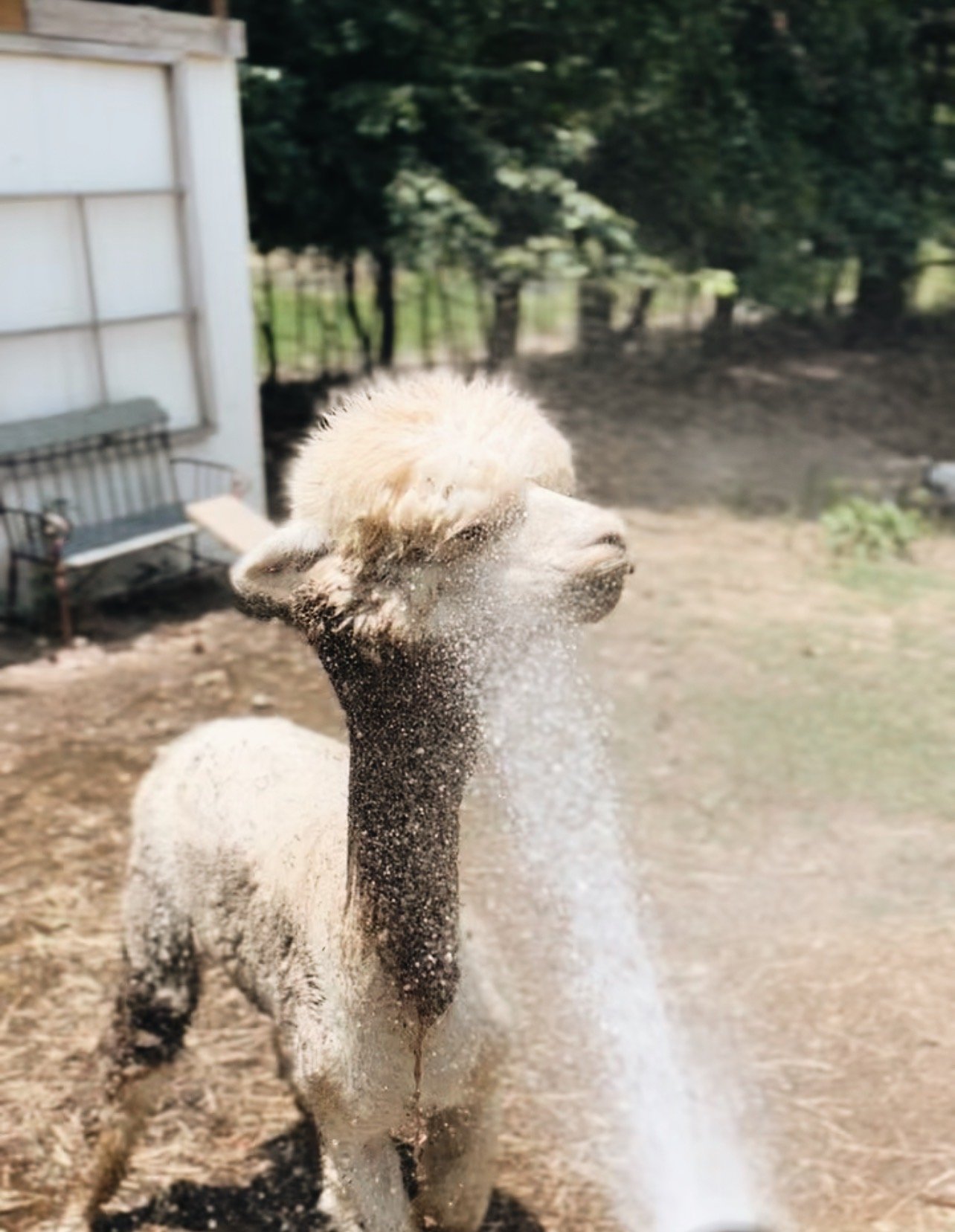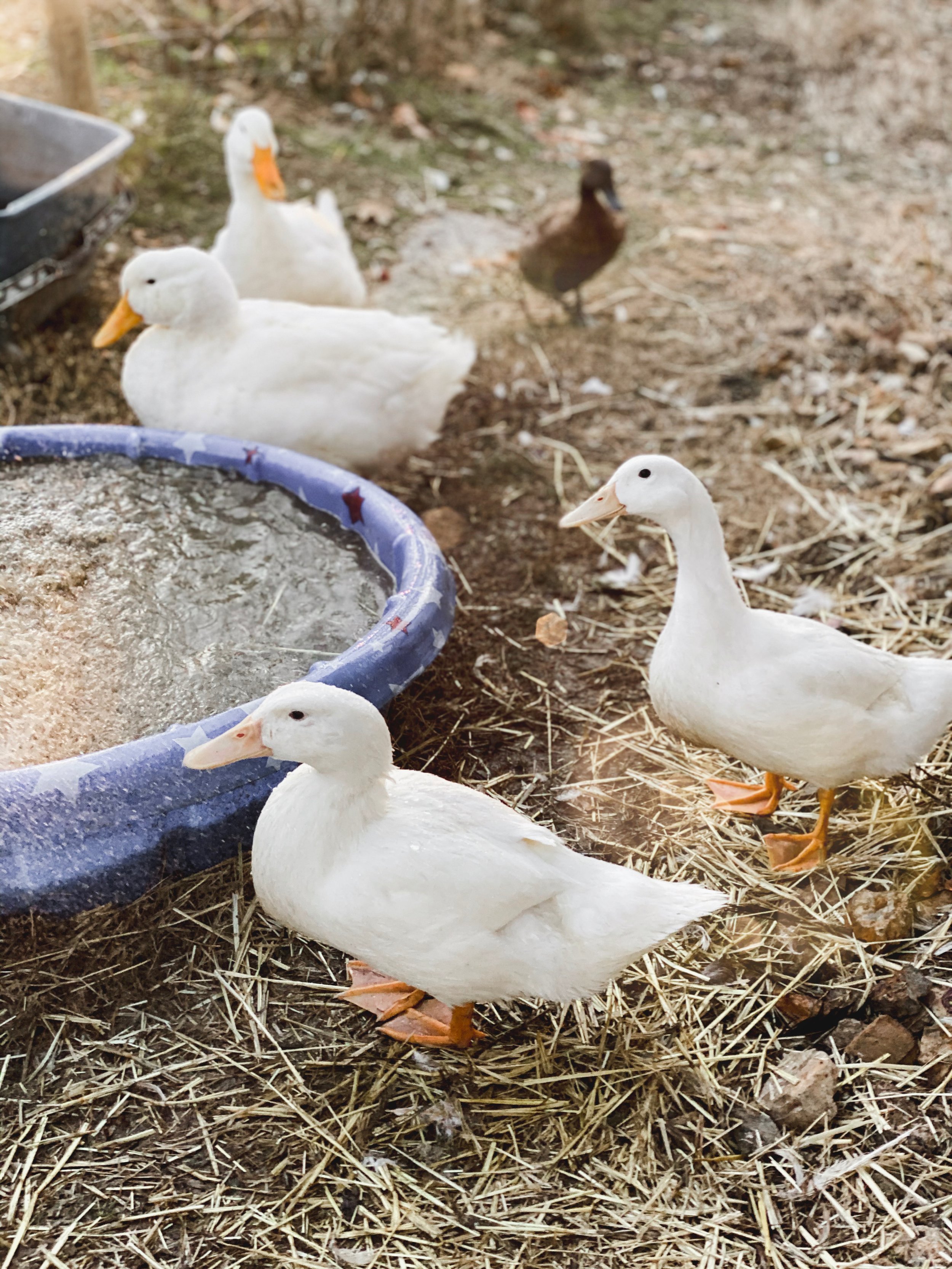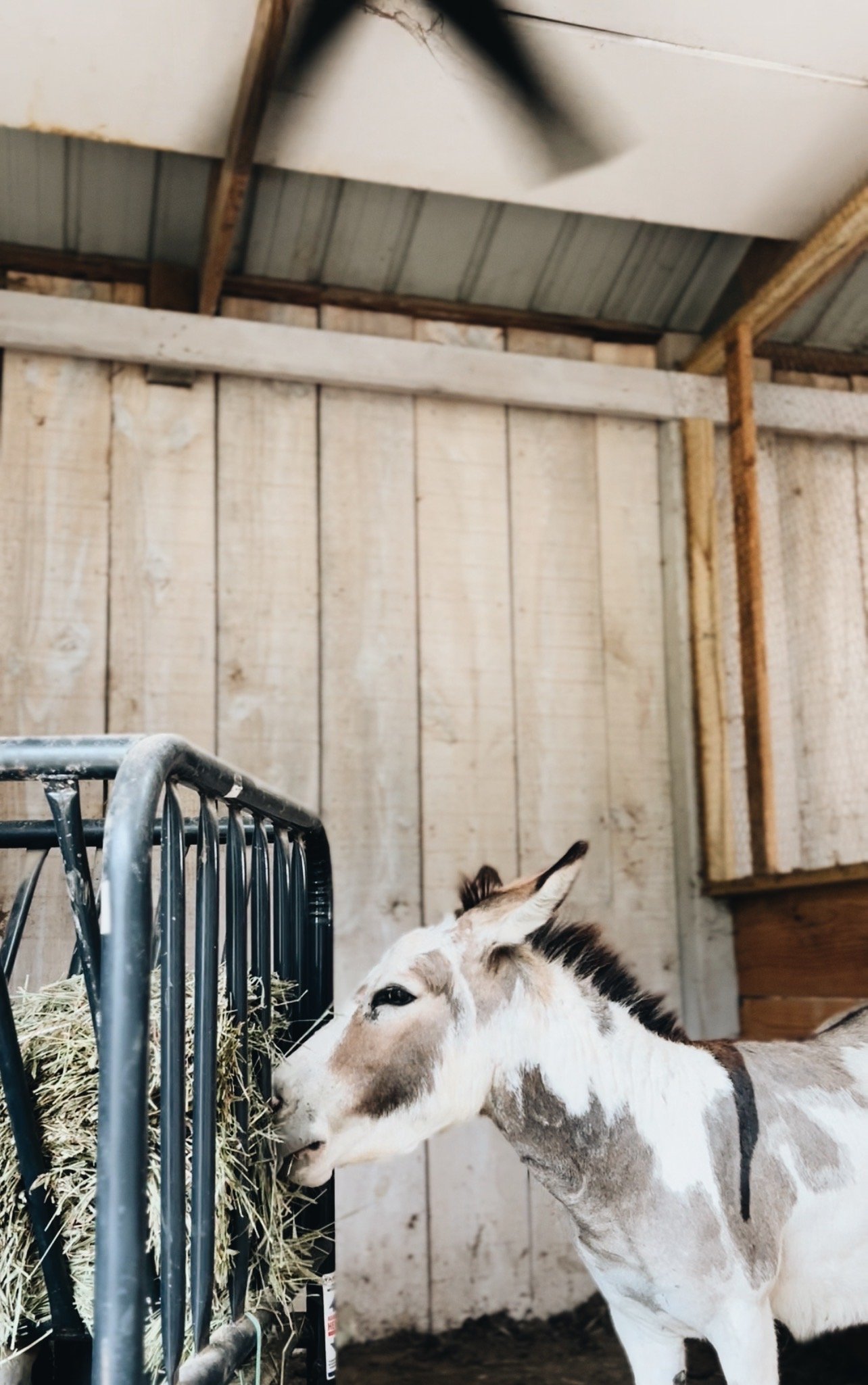7 Ideas to Keep Your Farm Animals Cool During Summer
When summer temperatures are soaring, and you are dying to take a dip in the pool or drink an ice-cold lemonade to cool down, keep your animal friends in mind!
Just like we need cooling down, they do too! Even more so when they are enclosed or not from an area with the same climate.
Keeping The #Farmily Cool
Animals can easily suffer from heat stroke and, even worse, die from heat exhaustion. And I'm sure nobody wants that!
Some animals cannot regulate their body temperatures that well, won't drink dirty water, or simply do not have shade or a space where they can hide from the sun. All these factors can lead to your animals overheating and dehydrating.
When high summer temps hit us here in Georgia, we do these 7 things to ensure everyone is cool and comfortable.
1. Continuous Fresh, Cool Water
Access to fresh, cool water is the most important. Many troughs of water standing all over the yard make it easier for the animals to drink water. It's like a reminder for them wherever they go. Just like some of us set a timer to drink water!
It also ensures everyone gets fair access to the water. You can add frozen plastic water bottles to help cool the water.
Some animals, like alpacas, are finicky and won't drink from foul water troughs. Therefore we clean our bowls and troughs a few times a week and give fresh water at least once a day. Sometimes you might even have to fill things up twice a day!
Did you know? Alpacas can quickly get dehydrated. The average alpaca downs about 4L of water per day!
2. Provide Shade
I would say the second most crucial is shade. It is incredible what a difference shade can make. Especially when your animals are not ranging freely.
If your birds or animals are in enclosed runs or pens, follow the sun's position throughout the day, and put up a barrier to block its rays during the hottest parts of the day.
Chickens' feet are delicate, and the terrain they are ranging on can become very hot. So having a shaded spot is crucial. You could also hose down the areas they tread around to cool down the ground or grass.
3. Shower Time!
Our alpacas LOVE when I give them shower baths in the summer! Only to roll around in a puddle of mud and ruin their pretty coats. I must say, I'm not sure who enjoys it the most. Them, or me having a laugh watching them having the time of their lives!
Spray them with water on the legs, the belly, and under the armpits. Avoid spraying water over their backs, especially when fully fleeced. Wet fleece will insulate the alpaca, similar to a wet suit.
Alternatively, you could use misting systems along the roofs of your barn and coop or lawn sprinklers to cool the animals off and spray down the ground.
A lot of horses also love being hosed down to cool off. Do not ever scare your animal with water. Slowly introduce “bath” time to the animal. If they’ve never had one before get them used to it before you surprise them with splashing water.
4. Play Pools
You can place kiddie pools or bigger water bowls dedicated for cooling off around your property.
Alpacas, chickens, and ducks will dip their feet or lower bodies when they feel the need to cool down.
However, donkeys and goats will avoid the water as much as possible! These babies do not like to get wet!
5. Fans and Ventillation
Having good air circulation makes a big difference in an area's temperature and humidity levels. Create natural breezes by opening doors or windows in your barn or coop to create good airflow.
If you cannot do this, install fans all around so the animals can cool down under them. Ensure all fans are secure so strong winds or the animals themselves can't knock them over. Check that all power lines are out of the way and in good condition.
6. Shearing and Clipping
Shearing your alpacas once a year, around April, is a great way to prepare them for the summer months. They are originally from South America, so their coats are often too thick for hot summer climates. I have a blog post explaining all about shearing your alpacas and other farm animals. READ IT HERE.
Donkeys do not really require clipping, but if yours tend to grow very thick coats during winter, are slow to molt during spring, and you live in a hot climate, you can give them a clipping. If you are unsure how to do it, call in an expert to give you a hand as it may be a bit of a tedious and daunting task.
7. Ice treats and Electrolytes
Not only do I love making popsicles and yummy summer lemonades for our family, but I also enjoy making ice treats for our animals.
And they are crazy for them! I think they would have liked the treats all year round!
When the temps are scorching, I make frozen ice treats for our flock with water, vinegar, yummy meal worms, herbs, and berries. It is a great way to keep the flock both cool and entertained! They love pecking at it for hours, at least until it has melted!
Find my favorite, or rather their favorite, frozen flock treats HERE.
I would often add electrolytes to my animals' water bowls or feed them watermelon for added hydration.
Salt blocks are also excellent for restoring the electrolyte balance in your animals. Place them near their feeding troughs and they will lick them when they feel they need it!
I hope these ideas will keep your farm animals cool, comfortable, and happy during the summer months! It is indeed the best way to keep them healthy and avoid trips to the vet or heart-breaking situations.
Want to learn more about how to care for farm animals? These posts may be helpful!
20 Essential things you need to know about caring for goats
A beginners guide to caring for donkeys
Caring for chickens 101
PIN FOR LATER
Love, Annette xx









